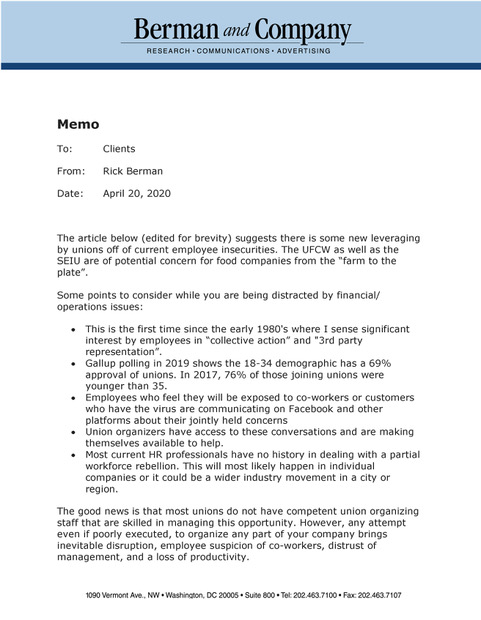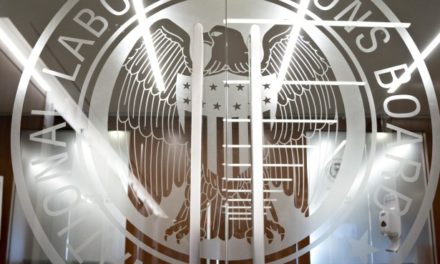Notorious union buster Rick Berman recently sent an urgent memo to employers across the country warning them that, “this is the first time since the early 1980s where I sense a significant interest by employees in ‘collective action’ and ‘3rd party representation.’”
In his memo, Berman states that “most current HR professionals have no history in dealing with a partial workforce rebellion.”
While Berman’s memo is meant to drum up clients for his PR firm, his observations aren’t wrong. Labor is seeing renewed interest from workers in collective action. Take for example the May 1 nationwide walkouts by employees at some of the largest non-union employers in the country.
Workers from Amazon, Instacart, Whole Foods, Walmart, Target, and FedEx participated in the unprecedented walkouts citing employer record profits at the expense of workers’ health and safety during the COVID pandemic.
“This company failed us. It failed the workers. It failed me,” said Christian Smalls outside the Amazon warehouse on Staten Island where he used to work and had organized other protests. Smalls says he was fired in March because of his union involvement. The company denies his claims and instead says he was fired for violating quarantine and safety measures.
In addition to the collective action on International Workers’ Day, labor leaders are seeing increased interest in organizing.
Tom Smith, national organizing director for the Communications Workers of America, told reporter Steven Greenhouse that, “coronavirus-related activism was setting the stage for longer-term organizing. It’s changing people’s calculus. Workers often sense they’re taking a risk when they’re acting collectively. But Covid-19 has turned some of that calculus on its ear. Yeah, maybe the boss will hold it against me. Maybe this will put my job in jeopardy. But I’m not going to put my life or my newborn’s life or my immuno-compromised parent’s life in danger.”
Smith said he recently took part in a conference call with 1,000 largely non-union workers about Covid-19 and near-term and longer-term steps.
“All of this is leading folks to really step forward and take action,” he said. “This will be the first workplace confrontation for tens of thousands of people.”
The result, he said, will be many new workplace leaders, groups and networks.









